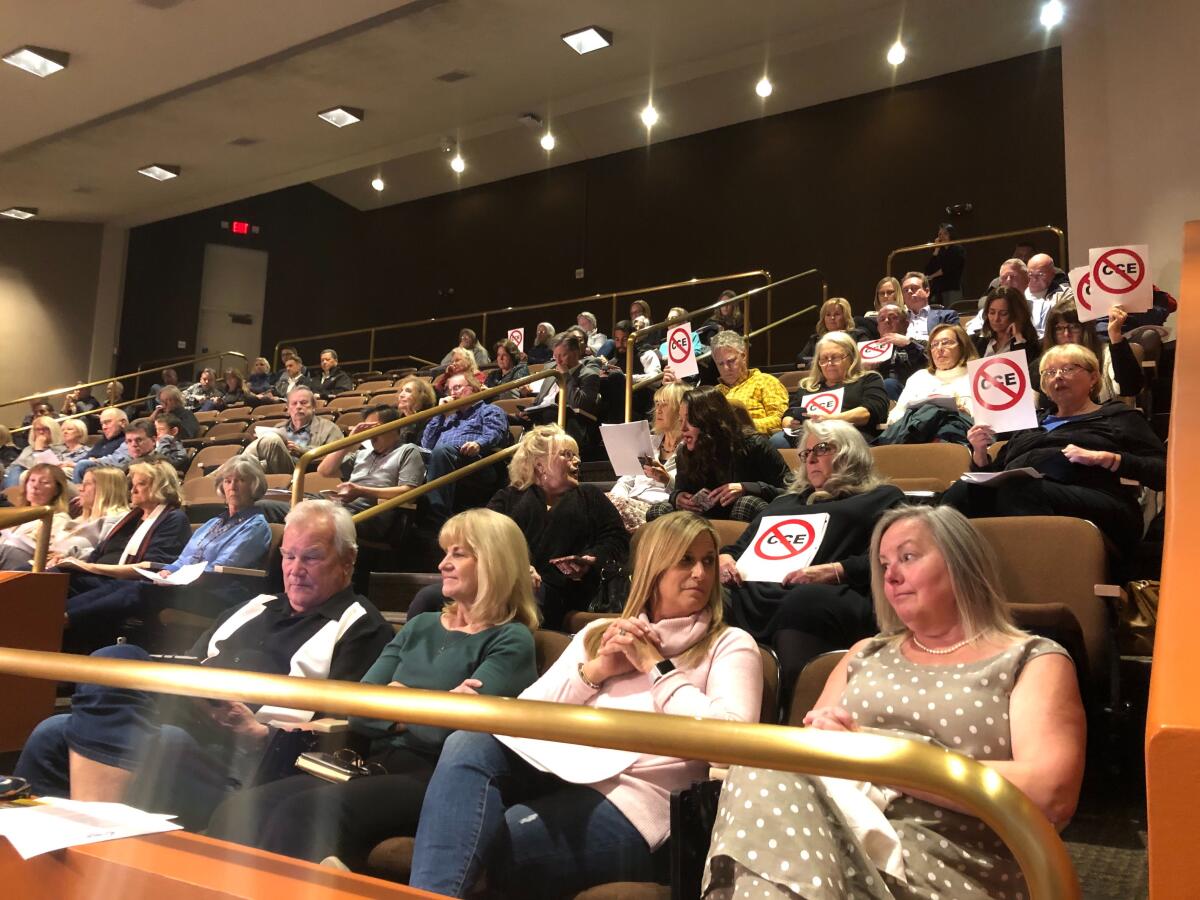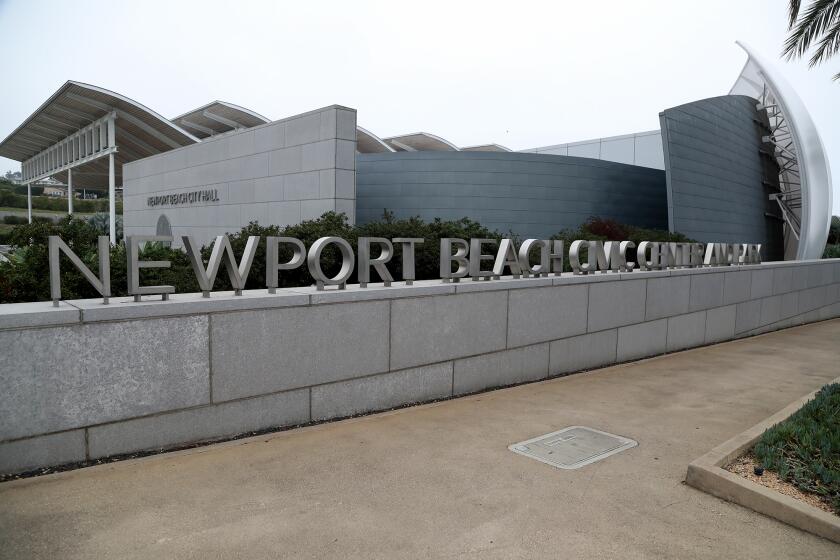Huntington Beach moves forward on study of government-run energy

After lengthy debate by council members and comments from community members and advocates of “green” energy, the Huntington Beach City Council voted 5-2 on Monday night to move forward with a feasibility study on community choice aggregation, in which local governments can establish publicly run energy programs.
The council voted to direct staff to spend up to $66,000 and, as part of the study, assess the option of joining Irvine’s CCA program.
The Irvine City Council voted Dec. 10 to move toward establishing community choice aggregation, also referred to as community choice energy, and said it would invite Huntington Beach and some other Orange County cities to join.
Forming a CCA enables local officials to choose what kinds of energy to buy for their communities. Participating governments get a say in setting rates and designing incentives for “clean” energy technologies.
Southern California Edison would continue to deliver electricity through a partnership and be responsible for building and maintaining power lines and other infrastructure as well as billing customers.
The Huntington Beach council vote followed a directive proposed in August by members Barbara Delgleize and Kim Carr to consider a CCA feasibility study.
Mayor Lyn Semeta and Councilman Erik Peterson dissented Monday, as they did in 2017, when the council first voted to explore CCA.
Residents — many having mobilized on social media forums since Monday’s agenda item was announced last week — came out to comment for and against spending tax dollars on a study.
Vanessa Martinez alleged that outside interests were trying to influence the council decision and compared Irvine’s attempt to bolster support for CCA to Russian interference in U.S. politics.
“We say no to this partnership with Irvine. We say no to this biased study,” Martinez said.
“Spending money to study a bad idea is misguided, to say the least,” said Thomas Gould.
Yvonne Mauro lambasted council members for neglecting other issues.
“We have streets that are a mess, roads crumbling ... dangerous playgrounds,” Mauro said. “Fix things that are broken, not create more problems.”
Irvine is “stalking us like a predator right now,” said Cari Swan, who suggested Huntington Beach wait five years and see what happens with CCA in neighboring cities.
“If they fail, they take us with them,” Swan said.
Other residents held different views.
“The benefits to local communities have already been proven elsewhere in California,” said Hildy Meyers.
Marin County launched California’s first CCA in 2010. There are now 19 such government-owned utility programs across the state. None is in Orange County.
Meyers said benefits include “local control over decisions ... introduction of competition ... potential for lower energy rates and renewable sources.”
“This is an opportunity we can’t afford to turn down,” she said.
“We could certainly use a relatively inexpensive feasibility study to give us guidance,” Tim Geddes said. “Process arguments should not get in the way of progress.”
“I support [community choice energy],” said Dan Kalmick, a city planning commissioner. “I’d like to have the option. For $60,000, I think we can walk and chew gum at the same time.
“Arguments that are opposed ... it seems to be the absolute worst-case scenario.”
Peterson said he doesn’t believe that “we as a governing body should create more government. We are holding the taxpayers responsible for any good or bad decisions going forward ... so I’m not in support of this at all.”
“I think we have to answer a lot of questions raised by our residents,” said Councilman Patrick Brenden. “I want facts, and I won’t get those facts without a study.”
“If there is savings to be had and that savings gives Huntington Beach an edge to attracting business … then maybe that makes somebody bring ... jobs here,” Councilman Mike Posey said.
Semeta dismissed arguments about potential savings and said: “Why would we be ahead of the curve before we know what’s coming down the pike? ... This is more of an experiment.”
“We don’t have our residents here asking us to do this,” she added.
“We are residents!” a few audience members interjected.
“All of us who have lived here a really long time are used to a certain way of the city working, [but] it’s changed, ladies and gentlemen,” Delgleize said. “Whether it’s CCA ... you need to take your blinders off and realize it’s changing.
“In the long term, I’m hoping it will jump-start us ... into the future.”
Carr argued that potential 2% savings aren’t insignificant.
“As community leaders we need to be forward-thinking,” Carr said. “It’s called community choice because that’s what you get, a choice. To not take a look at this seriously is a disservice to our residents.”
Some green-energy advocates suggested Huntington Beach not commission a study but, as a cost-saving alternative, review the findings of the Irvine study and direct city staff to analyze local data available from Edison.
“I’m not in favor of piggybacking on Irvine because, no offense to Irvine, but there needs to be some fact-checking going on,” Carr said.
MRW & Associates has been contracted to perform Huntington Beach’s study. It is not the group that performed Irvine’s study.
All the latest on Orange County from Orange County.
Get our free TimesOC newsletter.
You may occasionally receive promotional content from the Daily Pilot.




